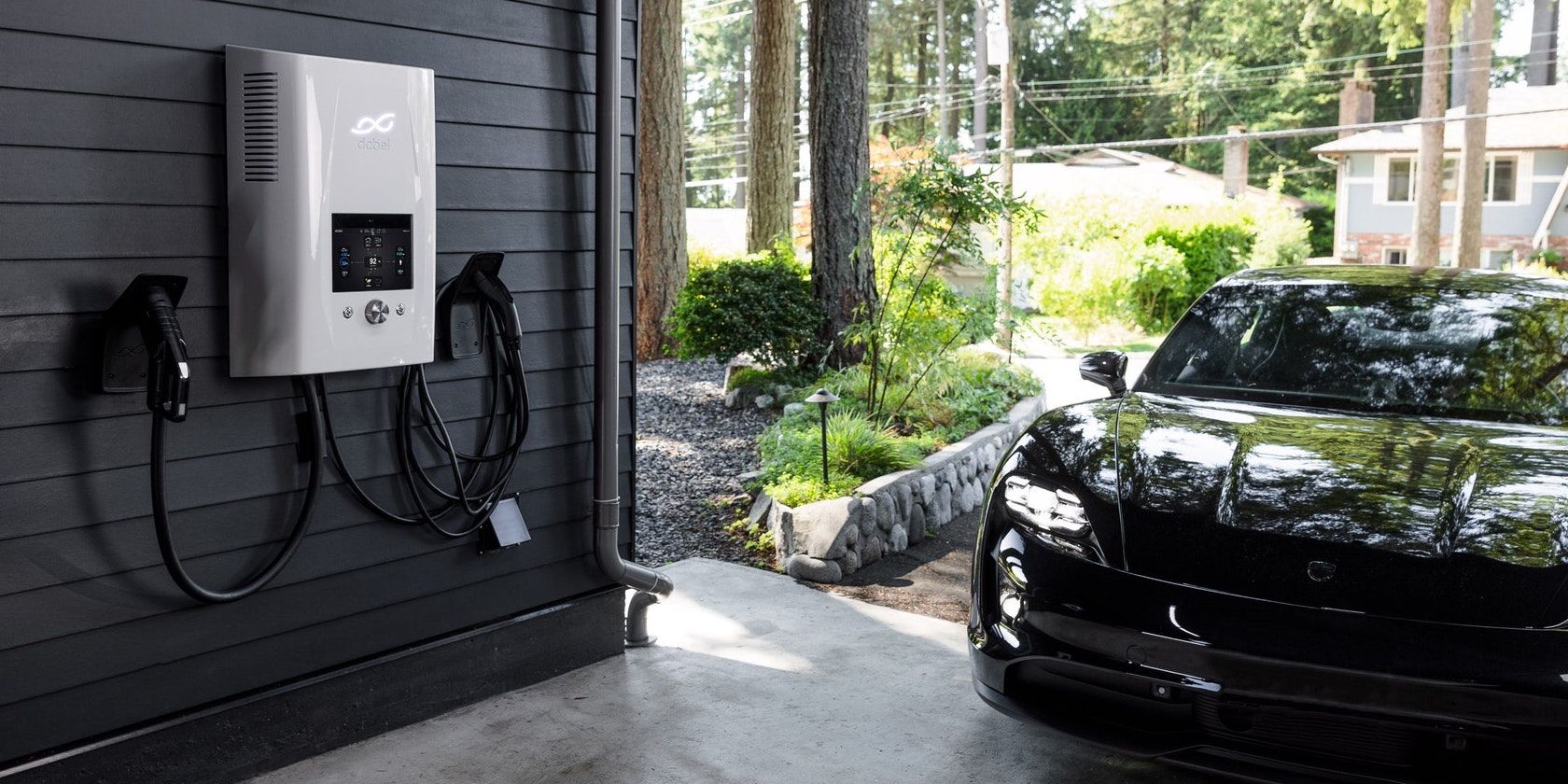EVs are all the rage. It's easy to envision a future where EVs are the de facto mode of transportation for everyday consumers, and charging infrastructure will need to advance along with EV use.
Part of this advancement in charging infrastructure extends to the housing market. If you have an EV at home, you'll want to charge it there, too, right? But does adding an EV charger to your home increase its value? Or would it put potential buyers off?
Level 2 Charging For Your Home
Your EV can charge at home using two distinct methods. The first method is through the common 120V outlet you can find in any home. Using the manufacturer-provided cable, all you have to do is plug in your EV to a conventional outlet and begin charging your car.
The drawback to this method, called Level 1 charging, is that it's much slower than the more advanced and much faster Level 2 or Level 3 charging. The solution to this dilemma is to install an L2 charger in your house, delivering much faster charging. This is especially convenient if you have a performance EV, which is much harder on the battery during day-to-day use.
The great thing about installing an L2 charger for your home, including the necessary auxiliary hardware needed to get it to work, is that you're basically adding value to your home in the form of a feature that contemporary homeowners will seek while they search for the home of their dreams.
When you install an L2 charger in your home, be it hardwired or simply connected to a 240V outlet, you're future-proofing your house. And you're also adding value to it.
Installing an EV Charger Will Increase Your House Value
According to Rivervale Leasing, after considering the prices of 1,000 UK homes, homes with an L2 charger sell for approximately 13% more than the average house price in the area. Furthermore, out of the 1,000 homes they looked at, 76% showed an increase in value when they featured an L2 charger as part of their infrastructure, compared to the other homes in the area.
It's clear that the housing market is moving towards serving a younger demographic. Millennials and Zoomers are moving into the housing market with new demands for the ideal house. Due to the seismic shift in vehicle sales from gasoline to electric, these new buyers will expect EV charging infrastructure as part of any home they purchase.
This will be especially true if the home is located in an area that doesn't have much access to public L2 or L3 chargers. If a home is located in a more secluded area that doesn't have easy access to public chargers, then the need for a home L2 charger is suddenly a huge priority.
At the moment, the fastest charging you can get in your home is L2, but it wouldn't be completely out of the question to imagine a future where homes have hardwired L3 fast charging stations in their garages. Naturally, if these newer generations are shopping for homes, and their mode of transportation is an EV, a home not properly equipped with an L2 charger might be a deal-breaker.
The Home EV Charging Investment Is Worth It
When you install an L2 charger in your home, you're essentially future-proofing your house. Not to mention, you're also installing a piece of hardware that will make your EV ownership experience much more pleasant. This is especially true if your commute is demanding and requires robust charging every night.
L1 chargers can add approximately five miles of range every hour, so you can expect to recover around 50 miles of range after a full night's charge. This is not enough for many people, and investing in an L2 charger for your home (which allows a vehicle to recover 100% of its range in a night's worth of charging) will become a necessity.
But the investment is definitely worth it, especially considering that the average cost of installing an L2 charger in your home is approximately $1,200, according to FIXR. The cost includes the Level 2 charger, plus the 240V outlet and wall mounting. Nonetheless, the cheapest way to charge your EV is to find free EV charging stations.
Homes featuring L2 charging infrastructure (as well as renewable energy sources capable of powering the L2 charger with energy produced in your home) will shape what consumers expect from homes in the future.
Access to clean energy is especially important in areas that don't necessarily have the cleanest electrical grids, so if a homeowner has installed a solar system capable of charging their electric vehicle and the home also features L2 charging capabilities, the home is undoubtedly going to experience a positive rise in its value.
Even without an EV charger, homes with solar panels and a battery energy storage system should already boast a price premium compared to regular homes not equipped accordingly.
EVs are currently creating demand for services and infrastructure that will help boost the economy, especially because new jobs are being created due to requirements popping up in relation to electric cars and the budding infrastructure surrounding them.
The Home Of the Future Is EV Ready
Clearly, the home of the future is a home that boasts renewable energy sources that can power the charging process of the homeowner's EV, among other things. The new homeowner is shaping up to be much more conscious of the environmental burden of their actions.
The homes they purchase will need to reflect their commitment to a cleaner way of life. The great thing is that homeowners looking to sell their homes can prepare for this new wave of buyers by taking relatively simple (and inexpensive) measures to ensure that their home is future-proof and ready for a more demanding buyer.

